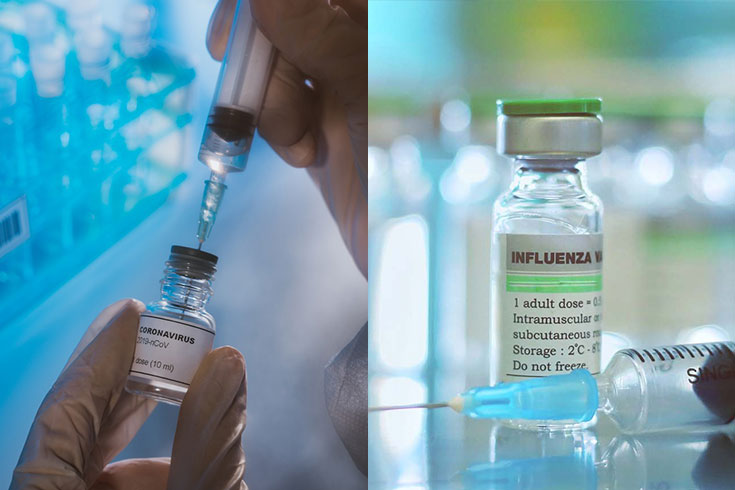The 2020 flu season is upon us as coronavirus simultaneously spreads like wildfire. If you or your loved ones develop upper respiratory symptoms, how do you determine whether it’s the flu or COVID-19? And what interventions are necessary? Read on to learn more about the similarities and differences between the common cold/flu and COVID-19, and what the myDoc Urgent Care medical team recommends you do if you develop symptoms or believe you were exposed.
Both the flu and COVID-19 are upper respiratory infections, but COVID-19 symptoms can be more severe, requiring a longer recovery period. The flu and COVID-19 are both contagious diseases that spread from person to person, but COVID-19 spreads much easier. Both infections can be transmitted before symptoms develop (asymptomatic spread), but COVID-19 remains transmittable for a much longer period of time (about 10-14 days).
As COVID-19 continues to spread and positive cases reach records highs, what should you do:
- 1. When upper respiratory symptoms appear?
- 2. If you were exposed to someone with COVID-19 but you are without symptoms?
Let’s first review some of the major symptoms of an upper respiratory infection which both flu and COVID-19 patients experience:
- Fever, or chills and sweat
- Cough
- Shortness of breath
- Sore throat
- Running nose and/or congestions
- Fatigue, body aches, or headache
- GI issues, such as vomiting or diarrhea
COVID-19 patients may also experience loss of taste or smell.
If you’re experiencing any upper respiratory symptoms, the myDoc Urgent Care medical team recommends:
1. Getting tested for COVID-19 as soon as possible. We recommend the regular COVID-19 test (PCR) instead of the Rapid Antigen Test as the rapid test is not as accurate.
2. Stay at home until a negative PCR test result and symptoms subside.
3. Manage minor symptoms with over-the-counter medication, lots of fluids, and plenty of rest.
4. Call your healthcare provider when symptoms are not improving or getting worse, or you have underlining health conditions.
5. Go to emergency room if your fever is above 102 or you experience shortness of breath.
If you have no symptoms (asymptomatic) but have been exposed to someone that tested positive for COVID-19, we recommend getting tested as soon as possible as we have seen a lot of asymptomatic positive test results. Asymptomatic people with COVID-19 are just as contagious as someone with symptoms.
Positive COVID-19 Patients Care Plan:
- Stay quarantined for 10 days, whether you are symptomatic or asymptomatic.
- Inform everyone you have been in contact with in the past 5-7 days that you have tested positive so they can all be tested.
- Manage minor symptoms with OTC medication, rest, and fluid.
- Go to emergency room and contact your healthcare provider if your fever rises above 102 or you experience shortness of breath.
- Get another COVID-19 test before returning to work or school.
myDoc Urgent Care urges the public to please wear a mask and get tested if you experience any symptoms or have been potentially exposed to someone with COVID-19. With locations in Center City, University City, Chinatown, and Progress Plaza (Temple), myDoc Urgent Care is providing both rapid and PCR test 7 days a week. Appointments are required and can be booked on our website: myDocUC.com
myDoc Urgent Care is here to help, walk-in or call us if you have any questions.
Center City
1420 Locust St Philadelphia, PA 19102
Phone: 215.800.1909
University City
3717 Chestnut St. Philadelphi, PA 19104
Phone: 215.921.8294
Temple University Main Campus
1501 N. Broad Street, Phila, PA 19122
Phone: 267.457.5553
Chinatown
1008 Arch St. Philadelphia, PA 19107
Phone: 267.881.9111





